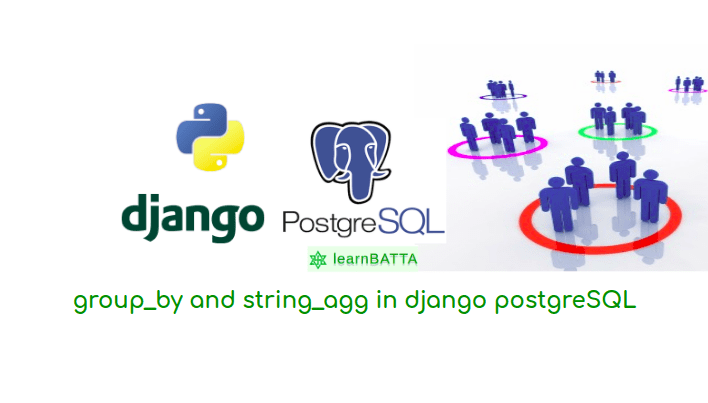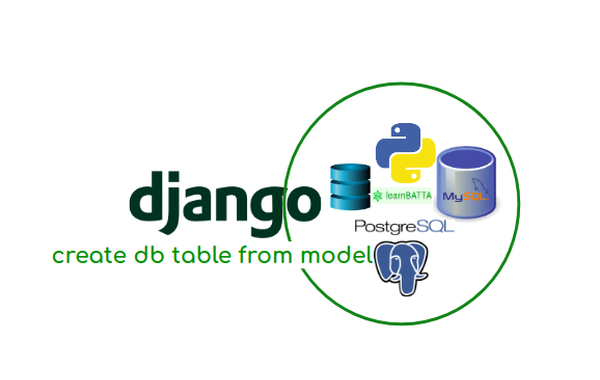Usage Of Group_By And String_Agg In Django, Postgresql¶

In this article we are going to learn how to optimize the queries in Django applications. Django has a built-in ORM which converts the django query into optimized SQL query. In some cases we need to group the data based on some common django field or a table column. This can also be done without using the group_by and string_agg in django query. In such cases we need to query for all matching records and then form the groups based on the fields. In this case we need to query first and then process the results. It will cost more time (i.e: SQL query time + Data Processing time). If we use group_by and string_agg in django with postgreSQL database, to optimize the query time and get the desired data format.
Let's consider the below models
from django.db import models
class Customer(models.Model):
first_name = models.CharField(max_length=50)
last_name = models.CharField(max_length=50)
class Address(models.Model):
customer = models.ForeignKey(Customer, on_delete=models.CASCADE)
phone = models.CharField(max_length=15)
line = models.CharField(max_length=50)
city = models.CharField(max_length=50)
Now, consider the below data tables
Table: Customer
| id | first_name | last_name |
|---|---|---|
| 1 | Anji | B |
| 2 | Jessi | S |
| 3 | Rohan | C |
Table: Address
| id | customer_id | phone | line | city |
|---|---|---|---|---|
| 1 | 1 | 987654321 | sri nagar | Hyderabad |
| 2 | 2 | 123654789 | sai nagar | Bangalore |
| 3 | 1 | 987456321 | prakash nagar | Medak |
| 4 | 1 | 321456987 | Joshenbeg | Rangareddy |
Desired Data Format:
| customer_id | customer_name | phone_numbers |
|---|---|---|
| 1 | Anji | 987654321, 987456321, 321456987 |
| 2 | Jessi | 123654789 |
To get data format like above table we need use group_by and string_agg in django with postgreSQL database. Let's see the below django query
from django.db.models import F
from django.contrib.postgres.aggregates.general import StringAgg
queryset = Address.objects.values('customer_id').order_by('customer_id').annotate(
phone_numbers=StringAgg('phone', delimiter=','),
customer_name=F('customer__first_name')
)
print(queryset)
# Output: <QuerySet [{'phone_numbers': '987654321,987456321,321456987',
# 'customer_name': 'Anji', 'customer_id': 1},
# {'phone_numbers': '123654789', 'customer_name': 'Jessi',
# 'customer_id': 2}]>
Try above code to test it practically in your project.
References:
https://docs.djangoproject.com/en/dev/_modules/django/contrib/postgres/aggregates/general/#StringAgg

